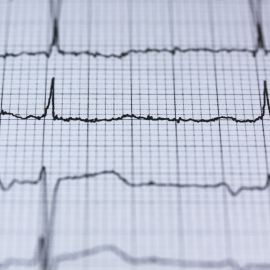Macular Degeneration is an age-related condition caused by damage to the macula. The macula is the central area of the retina, which is the lining of the eye where light is focused. The retina functions in a manner similar to film in a camera. Macular Degeneration results in the loss of central vision. However, the peripheral vision is not affected. Macular Degeneration is the most common cause of blindness in Americans over the age 60. More than 1.6 million Americans suffer from age-related Macular Degeneration.
Two types of Macular Degeneration are found in patients: 90% suffer from dry macular generation causing snow vision loss from mild to moderate.
Dry Macular Degeneration causes blurred or reduced central vision. Patients describe the effect on their vision like having a blurry area in the center of their line of vision. This is a result of the thinning of the macula, the part of the retina responsible for clear vision in one’s direct line of sight. No one knows exactly what causes dry Macular Degeneration, but research indicates that smoking and diet as well as hereditary and environmental factors increase the risk.
Dry Macular Degeneration can develop in one eye and then both, inhibiting one’s ability to read, drive and even recognize faces. Dry Macular Degeneration usually affects both eyes. If only one eye is affected, you may not notice any changes in your vision because your good eye may compensate for the eye affected by Macular Degeneration. The condition doesn't affect peripheral vision and rarely causes total blindness.
The second type of Macular Degeneration is wet Macular Degeneration is caused by fluid or blood leaking under the macula and can result in severe and rapid vision loss. Dry Macular Degeneration can progress to wet (neovascular) Macular Degeneration causing rapid vision loss if left untreated. Patients can experience depression or even visual hallucinations.
Recent research promises options for treatment of Dry Macular Degeneration in the future including laser treatments, photodynamic therapy and medical injections in the eye.
_270_270_c1_c_c.jpg)


Dry Macular Degeneration symptoms usually develop gradually and without pain. They may include:
Low vision rehabilitation
Age-related Macular Degeneration doesn't affect peripheral vision and usually doesn't cause total blindness. But it can reduce or eliminate your central vision. A low-vision rehabilitation specialist, occupational therapist and your eye doctor can help you find ways to adapt to your changing vision
Surgery to implant a telescopic lens
One option for those with advanced dry Macular Degeneration in both eyes, is surgery to implant a telescopic lens in one eye. The telescopic lens, which looks like a tiny plastic tube, is equipped with lenses that magnify your field of vision. The telescopic lens implant may improve both distance and close-up vision, but it has a very narrow field of view.
The condition develops as the eye ages. Dry Macular Degeneration affects the macula — an area of the retina that's responsible for clear vision in your direct line of sight. Over time tissue in your macula may thin and break down.
Magnifying devices—hand-held or lenses—can help with reading and other close-up work. Adjust the font size in your computer settings. And adjust your monitor to show more contrast. Better lighting helps with reading and other daily activities, and it may also reduce falling risk.
Taking the following measures may help reduce the risk of developing dry Macular Degeneration:
Routine eye exams. Dilation of the eyes in an eye exam can help identify Macular Degeneration. Early diagnosis in an exam can delay vision loss.
Avoid smoking. Smokers have been proven to be more likely to develop Macular Degeneration than nonsmokers.
Implement a healthy diet. Studies show that a diet high in fruits and vegetables can decrease the risk of Macular Degeneration. Fruits and vegetables contain antioxidant vitamins A, C and E. Supplemental zinc and lutein may also slow the progression of the disease.
Include fish and nuts in your diet. Omega-3 fatty acids, which are found in fish, may reduce the risk of Macular Degeneration. Nuts, like walnuts, also contain omega-3 fatty acids.
Manage your medical conditions. Cardiovascular disease and high blood pressure can affect Macular Degeneration.
Exercise and maintain a healthy weight. Obesity affects your chances of developing macular degeneration.
Wear sunglasses. UV light is known to contribute to Macular Degeneration.
The American Academy of Ophthalmology reports that research shows vitamins benefit early-stage dry Macular Degeneration when taken as follows:
Ask your doctor if taking supplements is right for you. See your eye doctor if you notice changes in your central line of vision or if your ability to distinguish colors or fine detail is compromised.